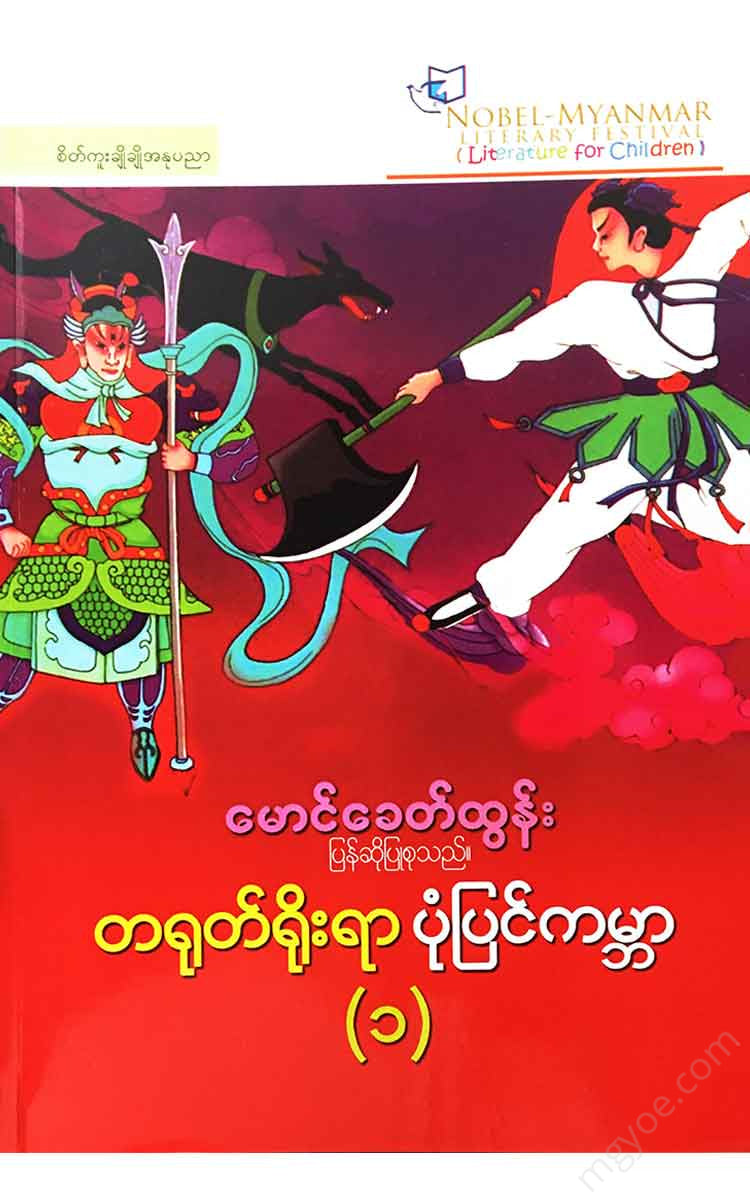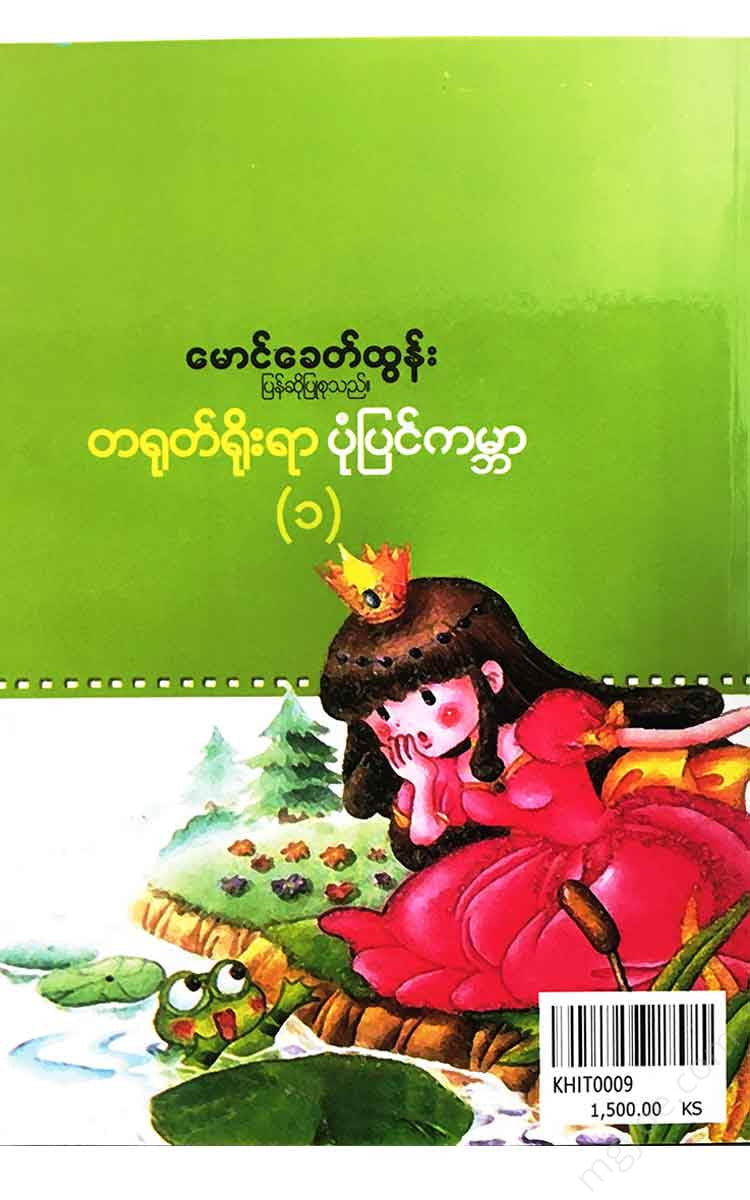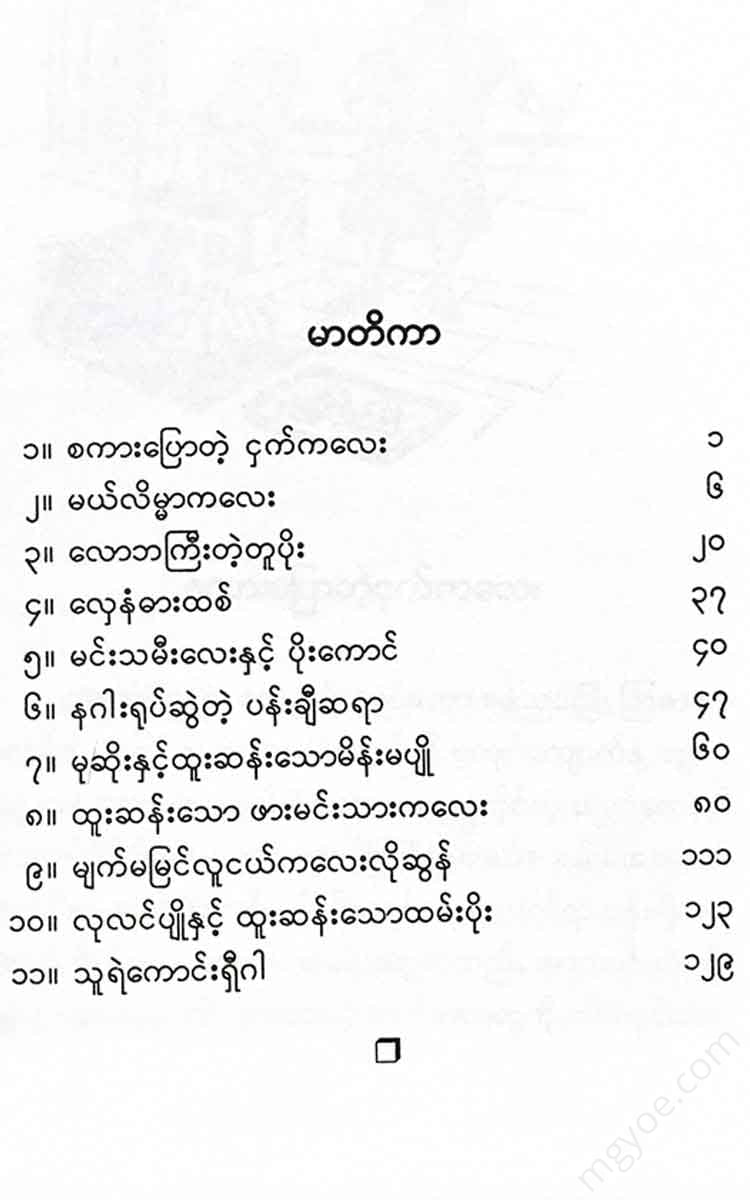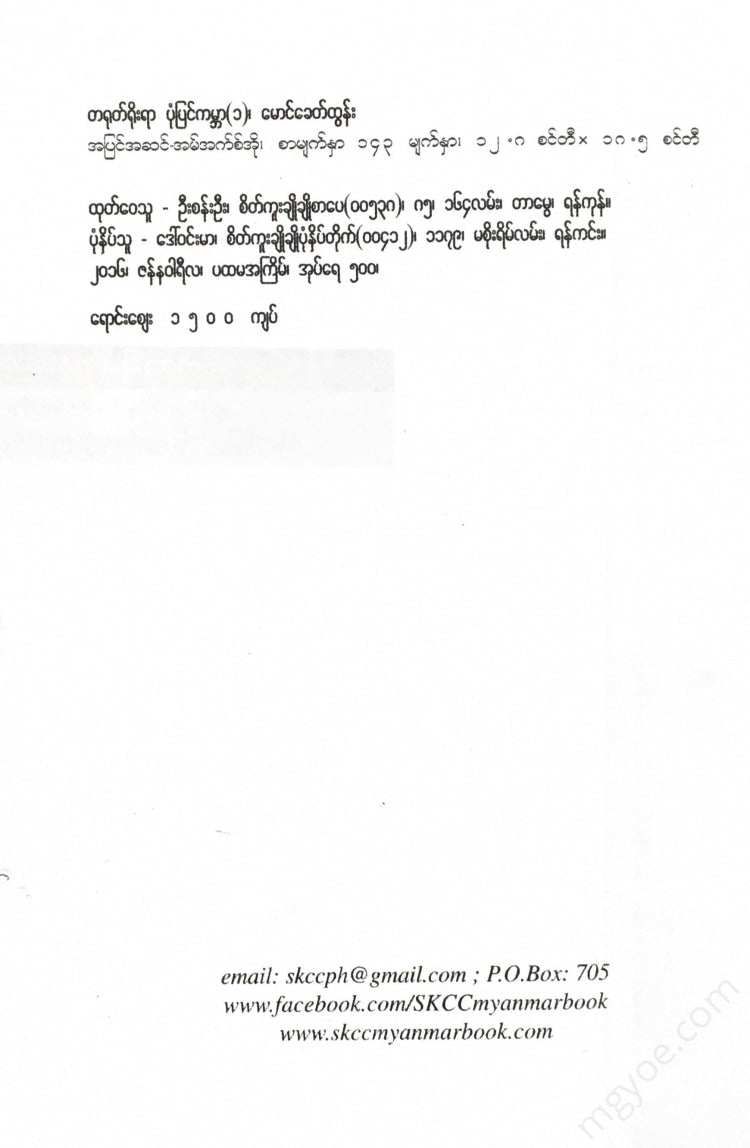စိတ်ကူးချိုချိုစာပေ
Maung Tshik Tun - The World of Chinese Folklore (1)
Maung Tshik Tun - The World of Chinese Folklore (1)
Couldn't load pickup availability
Talking bird
The Empress Dowager of China was a magnificent and powerful person. Her palace was built of marble and gold. A jade lion guarded her throne. The halls and halls were decorated with paintings by famous artists. The rooms were covered with carpets woven from the finest wool and silver thread. Her advisors were also people of the highest intellectual level. She also had a bodyguard of warriors who were skilled in warfare. Anyone who had a question to ask her had to bow to her and make a request.
But after about a year, an old man came to beat him up. This man lived far away in the country. For many years, he had raised a talking bird. He would take his bird with him wherever he went, and they would talk to each other and laugh together whenever they had something to laugh about.
One year, the old man became poor because his crops failed.
“I have nothing valuable left, except my little bird. I must make money with this bird,” said the old man, putting the bird on his shoulder and setting off for Peking, where the Empress Dowager Cixi lived. They discussed in whispers on the way what they should do when they reached the Golden City. Many travelers heard about the little bird, which could speak very strangely. Grandpa O and the little bird soon arrived in Peking. Everyone was talking about them. The news reached the Empress Dowager Cixi. The Empress Dowager Cixi summoned the old man and asked him to sell the bird to her. Grandpa O shook his head and said,
"This bird and I are old friends. That's why I can't part with this bird," he said.
The Emperor was not one to accept rejection, so he ignored the old man's words and turned to the bird.
"Wouldn't you like to live comfortably with me in this beautiful palace of mine?" he asked.
"I want to live like you," the bird replied. Then the emperor and queen said,
When asked, "How much should I give this old man for you?" the bird replied, "Ten silver coins."
The queen took the bird from the old man's shoulder, put it in a golden cage, and had her servants give the old man ten silver coins. That was a lot of money for a farmer.
Then the old farmer took the money and returned to his village, grumbling, “This bird is an ungrateful and unfaithful bird. My heart is broken.” That day, the bird talked to the Queen, laughed, and smiled happily. After the bird had eaten the delicious food, he asked the Queen where he could bathe. The Queen pointed to the lotus pond below her room and said,
"You... take a bath in this lotus pond," he said.
When the Queen let the bird out of its golden cage to bathe, it flew to the lotus pond and washed its hands in the water. Then it flew to the roof and sat on the roof, drying its feathers in the sun. When it was done, the bird said to the Queen,
"Now I am free. I have said goodbye. Your Majesty," he said, and flew away.
The Queen was furious and sent her bodyguards to find the old man and bring him to her.
Soon the old man arrived and the Queen asked him, "Where is the bird? Are you deceiving me?"
Then the old man said, "We don't have any birds. We are sad because we don't have any. I don't want to sell my birds, and your Majesty knows that too."
All the farmers agreed that the old man was right. Finally, the Empress Dowager let the old man go. After that, the Empress Dowager never saw the old man or the bird again.
The old man came to a small plot of land in the hills, many miles away. He invested the ten thousand shillings he had received from the Empress Dowager and used them to develop his farm. He had also purchased the necessary equipment. He now had enough to live on for the rest of his life.
Some people claim to have seen the talking bird entering and leaving the old man's house, while others claim to have seen the bird talking to the old man. But no one has dared to claim to have seen it for sure.
[ The Story of Little Red Riding Hood and other tales oss ą c ą The Talking Bird]







